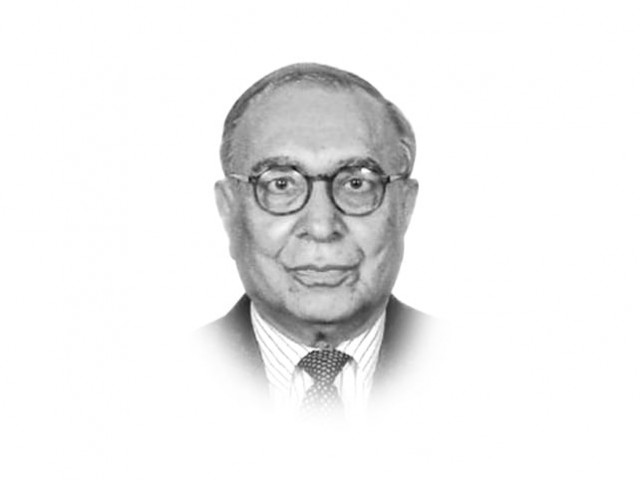Intimations of change
A week of high political excitement indicates that the status quo is now gravely challenged.

Intimations of change
The third — the surprisingly large meeting addressed by Imran Khan —has, however, features pointing to a profound shift in the attitude towards national politics. It was qualitatively different inasmuch as it brought out the middle class, the youth and women whose engagement with politics usually falls short of proactive participation. According to a recent study, “there were 30 to 35 million Pakistanis earning an average of $10,000 a year and of these, about 17 million are in the upper middle class”. They had a palpable presence in the nationwide protests triggered off by General Musharraf’s assault on the higher judiciary. The momentum influenced the general election and opened up a great vista of parliamentary democracy. It got dissipated as the largest party in the ruling coalition and increasingly took politics out of the public sphere and into the Byzantine world of secret dealmaking to perpetuate its power. The cause of democracy suffered when the otherwise perfectly democratic business of building coalitions got denuded of all ethical restraints and degenerated into a relentless Machiavellian pursuit of group interests. Banished to the private sphere, unable to influence decision-making and confronted with a 26 per cent inflation rate, the middle class saw its lower echelons slide down the bar. It crawled back into drawing rooms to chatter and seek catharsis in inane TV talk shows. Even worse has been the disconnect with the masses whose political experience has congealed into the perception that elected rulers are as indifferent to their needs as any dictatorial junta. This can be fatal to Pakistan’s nascent democracy and may open the doors for authoritarian rule or anarchy.
Anarchy would stem from the seething rage of the people that is now all too visible. Paradoxically, Imran Khan’s massive ‘rally’ buys time for orderly politics by resurrecting hope. Politically speaking, Pakistan’s middle class is a work in progress; it is seeking to find a voice in the rapid proliferation of phones, internet usage, and electronic and social media. If Imran Khan can sustain a long-term engagement with the middle class, he may succeed in creating a new cadre of political leaders who consider politics a public service. Only time will tell if he can harness the great energy released by the mass upsurge of people around him. Pakistan’s history is littered with movements that ended up in outcomes diametrically opposite of their original objectives. Pakistan today has the ethos of a revolution but not the structures that give it substance and direction — in other words, organisations to institutionalise radical changes in the body politic. Be that as it may, a week of high political excitement indicates that the status quo is now gravely challenged and no stakeholder in the affairs of the nation will be able to ignore the return of the people to the political arena. It will be at its own peril that the ruling elite chooses to remain blind to the writing on the wall.
Published in The Express Tribune, November 7th, 2011.
















COMMENTS
Comments are moderated and generally will be posted if they are on-topic and not abusive.
For more information, please see our Comments FAQ